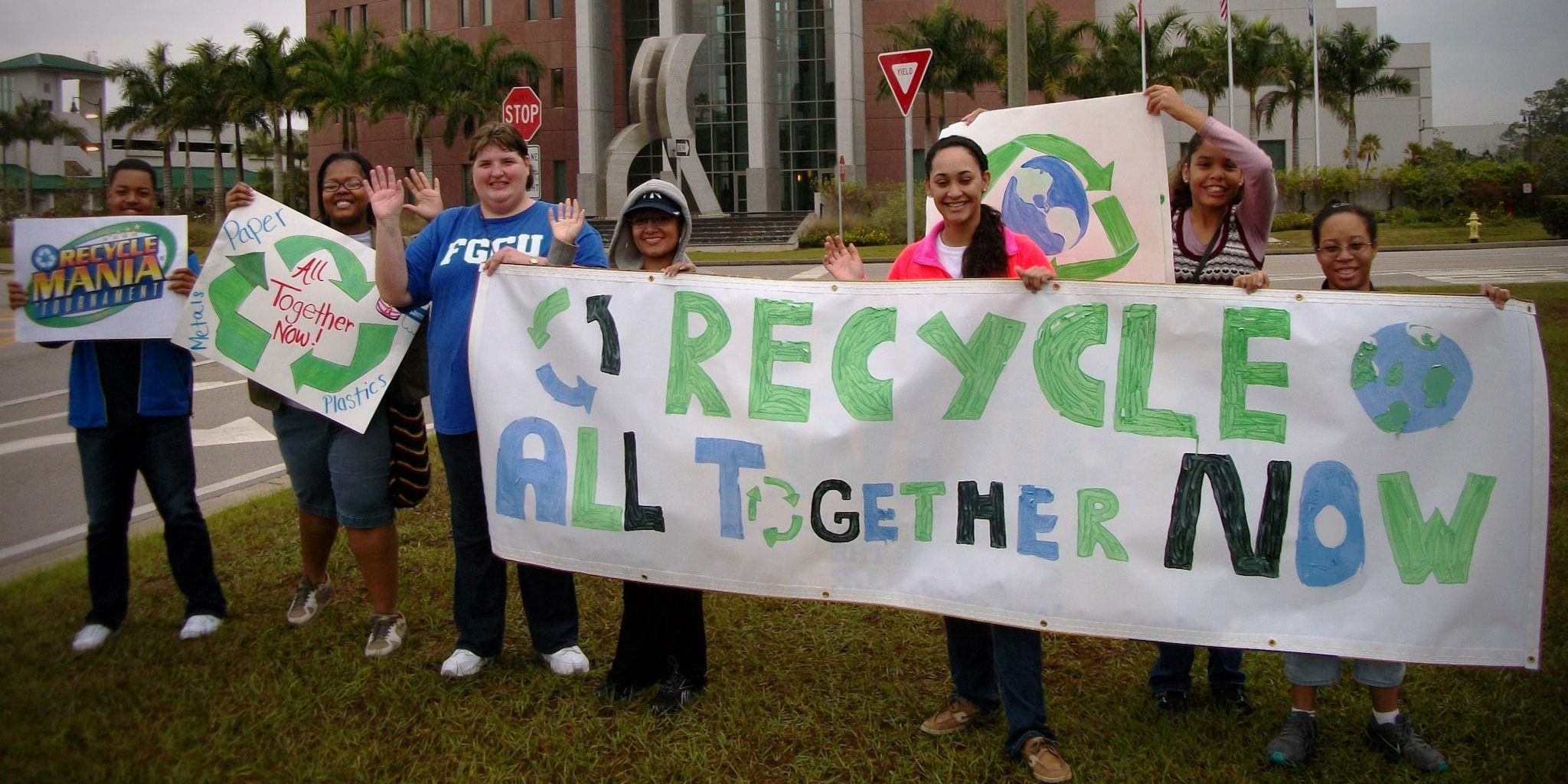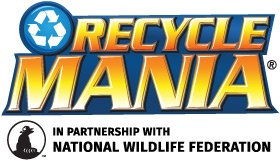We have much more to do and your continued support is needed now more than ever.
RecycleMania Takes on the Plastic Problem
National Wildlife Federation partners with U.S. colleges and universities to address one of the biggest threats to wildlife - plastic pollution in our streams, rivers, bays and oceans.

From major companies dropping plastic straws from their stores to municipalities instituting plastic bag fees or bans, the conversation about single-use plastics has evolved quickly. Beneficiaries of efforts to decrease the amount of plastic refuse include wildlife and their habitats.
In May 2018, National Wildlife Federation’s board passed a resolution introduced by the National Aquarium in Baltimore focused on promoting alternatives to single-use plastic. Specifically, the policy resolution calls attention to the alarming growth of plastic pollution in waterways and oceans and its devastating impact on marine life, food webs, habitat, and navigation.
Plastics in our waterways

Currently there are 5.25 trillion plastic particles in the ocean. Sources of this waste are wide-ranging and include plastic fishing nets, food and beverage containers, microbeads from personal care items, cosmetics, straws, and bags. And plastic waste is on the rise: sea turtles are now ingesting twice as much plastic as they were 25 years ago. In total, it is estimated that ingestion of plastic kills 1 million marine birds and 100,000 marine animals each year.
Additionally, one particularly harmful chemical found in many plastics, Bisphenol A (BPA) enters the ocean and acts as an endocrine disruptor for fish. Endocrine disruptors are chemicals that can can cause cancerous tumors, birth defects, and other developmental disorders by interfering with the endocrine system.
Polluted groundwater and plastics that end up in our waterways also have negative impacts on human health. According to the Independent, “Scientists fear that chemicals in plastics and also chemicals which attach themselves to plastic in the natural environment could cause poisoning, infertility and genetic disruption in marine life, and potentially in humans if ingested in high quantities.”
RecycleMania – A Campus Solution
 As the new managing partner for the national RecycleMania competition, National Wildlife Federation is committed to helping campuses reduce waste, work toward zero waste, and improve their recycling, specifically around plastic materials. RecycleMania is an eight week competition for colleges and universities that takes place during the spring semester. During this time, campuses compete to reduce waste and increase recycling. Campuses can participate in up to three main categories of the competition: Diversion, Per Capita, and Food Organics. Each requires reporting weekly for eight weeks beginning in early February through the end of March. RecycleMania participating campuses also have the opportunity to participate in a few special categories including electronics recycling, GameDay Basketball – where sports fans are encouraged to recycle and discard waste responsibly – and the Race to Zero Waste, building competition for campuses that are striving to significantly lower their waste footprint.
As the new managing partner for the national RecycleMania competition, National Wildlife Federation is committed to helping campuses reduce waste, work toward zero waste, and improve their recycling, specifically around plastic materials. RecycleMania is an eight week competition for colleges and universities that takes place during the spring semester. During this time, campuses compete to reduce waste and increase recycling. Campuses can participate in up to three main categories of the competition: Diversion, Per Capita, and Food Organics. Each requires reporting weekly for eight weeks beginning in early February through the end of March. RecycleMania participating campuses also have the opportunity to participate in a few special categories including electronics recycling, GameDay Basketball – where sports fans are encouraged to recycle and discard waste responsibly – and the Race to Zero Waste, building competition for campuses that are striving to significantly lower their waste footprint.
In addition to the greenhouse gas reductions and cost savings related to reducing the amount of waste that needs to be hauled away, recycling and waste reduction efforts have many other benefits for humans and wildlife.
Recycling saves energy
Since recycled materials have already been refined and processed once, manufacturing is much less energy-intensive the second time. New products from recycled materials use up to 30% less energy.
Recycling creates jobs
While most sustainable jobs in waste management involve reducing waste, increasing recycling and ensuring safer treatment and disposal of waste, several companies have identified the need for skilled workers to aid in the development of sustainable waste management practices. According to the Brookings Institution, nearly 400,000 workers in the U.S. are employed in waste management and treatment – the largest single segment of the clean economy. Learn more about the recycling and waste management career sector at www.nwfecoleaders.org/careercenter.
National Wildlife Federation, in partnership with RecycleMania, Inc., will continue to support campuses each year in their efforts to increase recycling and reduce waste, and plan to continue to lead the program in the direction of reduced and zero waste and the removal of single-use items. The winners of the RecycleMania 2019 competition will be announced in April 2019.
What campuses are competing in 2019? Check out the RecycleMania map.
See the MapWhich campus is leading in each of the categories? Check out the RecycleMania 2019 Scoreboard.
View the Scoreboard





















